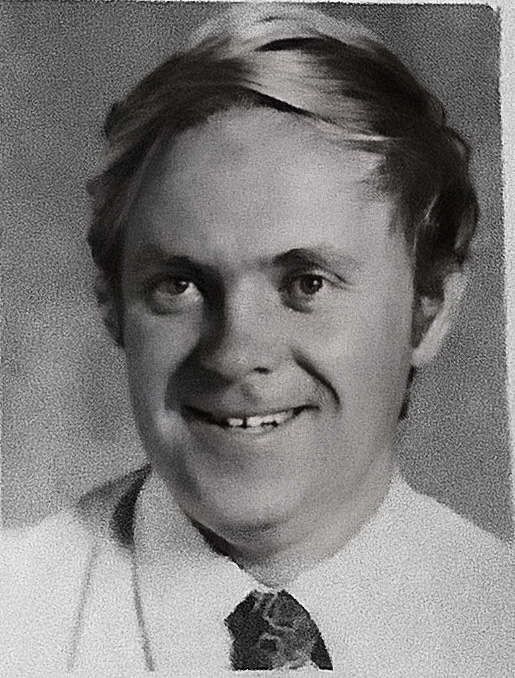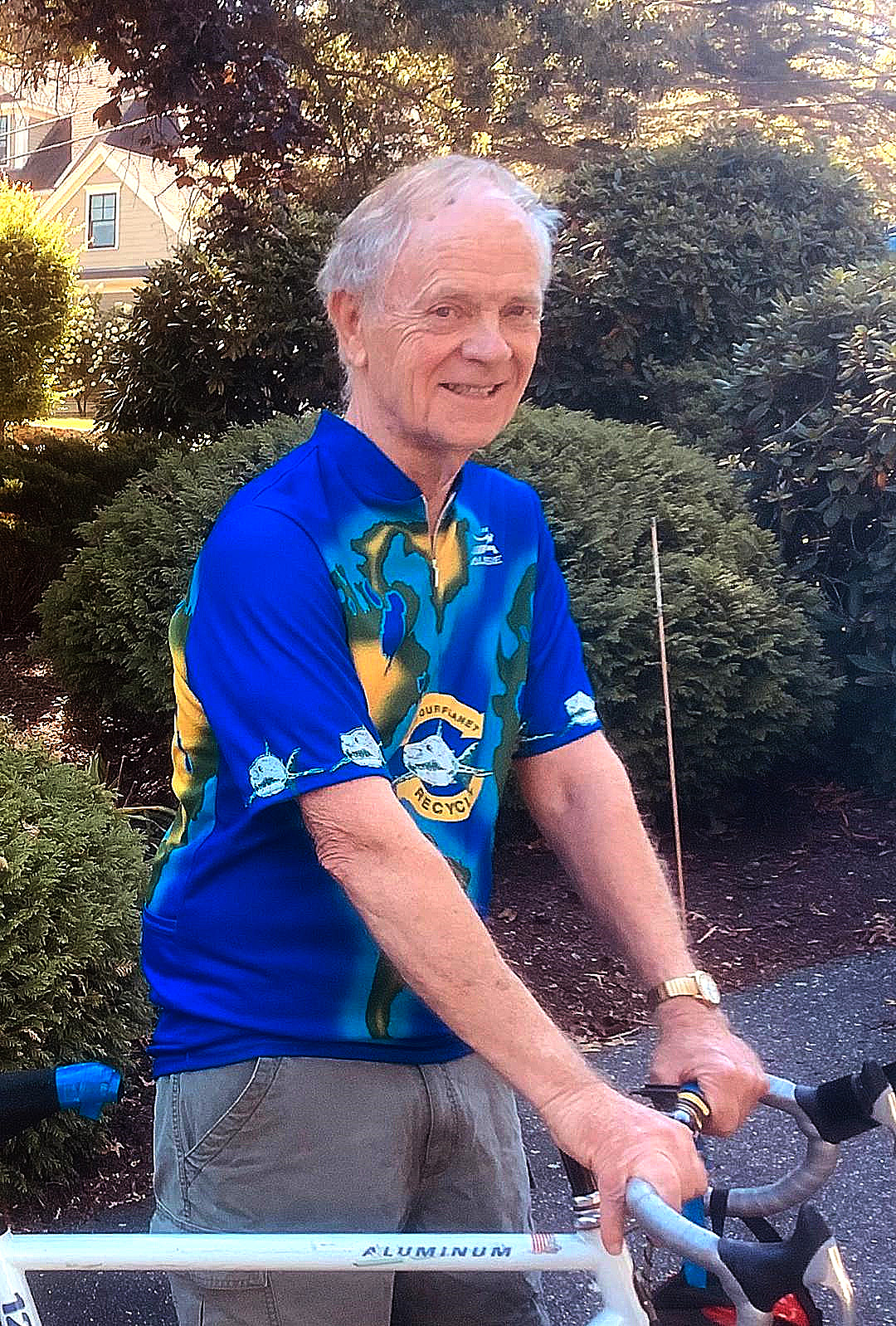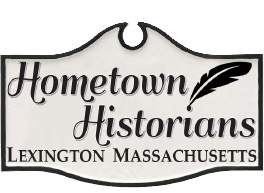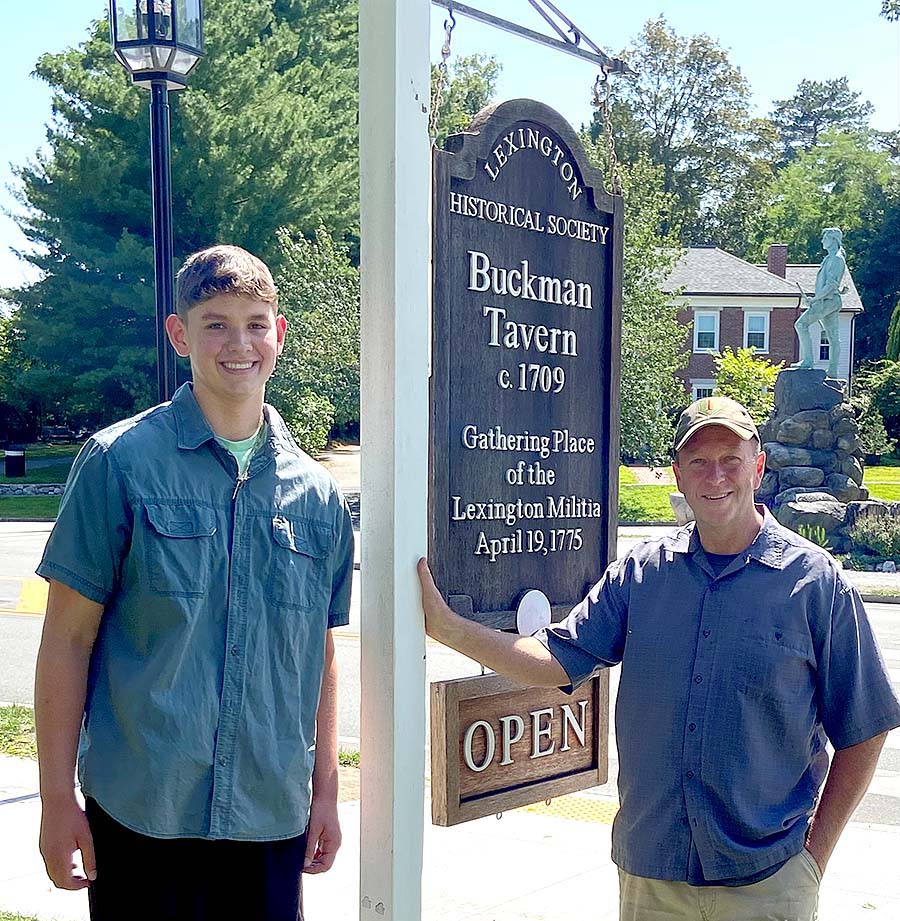An Exclusive Interview with Retired Lexington History Teacher Warren Winslow
Muzzey Junior High School and Clarke Middle School teacher Warren Winslow taught public school for forty years. His career as an educator began in Westford and Ayer before teaching Social Studies and History in Lexington for 36 years.

Mr. Winslow was born in Ayer, Massachusetts in 1943, where he developed his love of history and teaching. He would go on to earn a BS in Education and Master’s in Education from Worcester State College and a Certificate of Advanced Graduate Study in Education Administration from the Northeastern University Post Graduate Program. He lives in Lexington and maintains the kind of active and productive schedule one might expect from the quintessential, self-reliant New Englander. An avid outdoorsman, Mr. Winslow’s days consist of hiking rural trails, attending family events, landscaping, visiting historical sites, canoeing, memoir writing, and engaging in daily current-event discussions with fellow retirees at the East Village Dunkin’.
The Hometown Historians were fortunate to catch up with this busy “Never Retire But Inspire” Lexington teacher and discover what motivated him to teach, what teaching in Lexington was like, and what advice he has for new teachers.
Hometown Historians: What inspired you to choose teaching as a profession?
Warren Winslow: My first male teacher was when I was in the seventh grade. Back then only women taught elementary school in Ayer. He was young, dynamic, in his twenties, and he taught American History and Geography.
HH: Did you always enjoy learning about American history?
WW: I seemed to have an innate love of history in elementary school, so my grandparents took me to Washington, DC, Gettysburg, PA, Williamsburg, VA, numerous Civil War and Revolutionary War battlefields, West Point, the FDR Home and Museum, and New York City where we always toured historical locations. There was also a strong influence from nearby Fort Devens and the Army had an influence on my love for history. I’m sure that my father’s and all my five uncles’ service in World War II influenced me as well.
HH: What was teaching like when you first taught in the 1960s?
WW: When I first started teaching, Lyndon Johnson was our President. The influence of President Kennedy’s assassination, the Cuban Missile Crisis, Vietnam, and Cold War Tensions prevailed. A teacher could expect a starting salary of less than $5,000, and most school buildings were old-fashioned brick structures. Academic subjects were stressed and discipline was strict. The technology we have in today’s classroom was non-existent.
HH: When starting out, did any veteran teachers pass along worthy advice?
WW: The advice of veteran educators was usually appreciated. My first day of teaching the Superintendent advised: “Let the students up slowly. Be strict as you begin the year. Don’t be a friend. You can always loosen things up as the time passes, but discipline and respect is difficult to recover once lost.” Clarke Middle School Principal John Hibbard reminded his teaching staff that we set the example by following the rules. He stressed: “Do your job. Don’t be tardy. Don’t lie to me.” Assistant Principal John Capone’s belief in every student never wavered. “Never write any student off. Be fair but firm in all your teachings.” I found the Lexington administrators exemplary. They would never ask their staff to do anything they wouldn’t and couldn’t do themselves. They supported teachers and corrected us when we made mistakes.
HH: What did you enjoy most about teaching in Lexington?
WW: I enjoyed the high degree of camaraderie, knowledge, and professionalism of my colleagues. I enjoyed the historical environment of our town and neighboring towns throughout Greater Boston.
HH: You supplemented classroom teaching with historical field trips. Why?
WW: Effective teachers often utilize field trips to enhance and broaden regular educational curricula. Over the years my students visited most of the significant historical sites of Eastern Massachusetts. Even today, former students in their sixties will reminisce with me about trips to DC, Gettysburg, the JFK Library, or even seeing President George H. Bush at Hanscom Field.
HH: Why is history so important?
WW: Our curriculum included Discovery and Exploration, Colonization, Revolutionary War, Constitution and Government, Slavery, Civil War, Westward Expansion and Industrialization, and the Twentieth Century. I believe that history is important because it gives students a sense of identification with their past and their ancestors. I always held that history is what you want it to be, but you must form your opinion based on careful consideration of the evidence. History is more than just legislation, battles, and statistics. It is a chronological collection of human-interest stories about significant men and women and events that shaped our country. History teaches us about our country’s successes and mistakes so that America can have a brighter future for all.

HH: How do you keep busy in retirement?
WW: My wife and I travel, and I have written more than 130 human-interest stories—something I do when not writing ghost stories for my grandchildren. I also ride my bicycle about ten miles a day.
HH: Is there any teaching advice you would like to pass on to those entering the teaching profession?
WW: Insofar as it is possible, choose a subject or trade you like, enjoy, and feel passionate about. If you can do this, your teaching will be a pleasure; you will want to go to work. And of course, be sure you like working with children and young adults.
Before dismissing the Hometown Historians, Mr. Winslow had some final lessons: “There are no student failures, there are only teacher failures. This was the standard philosophy when I joined the Lexington team. Our mission was to guide each student to their full educational potential. Match teaching styles with the student’s learning styles and provide, whenever possible, for individual learning differences. Write nobody off, they will likely be a late bloomer.”
Mr. Winslow – one of the reasons Lexington remains A+ in education.

 The Hometown Historians are local historians dedicated to preserving unique historical events, monuments, and sites before they slip from the pages of history.
The Hometown Historians are local historians dedicated to preserving unique historical events, monuments, and sites before they slip from the pages of history.
ABOUT THE HOMETOWN HISTORIANS:
The Hometown Historians are local historians dedicated to preserving unique historical events, monuments, sites, and people before they slip from the pages of history.
Andrew McAleer (RIGHT) served as a U.S. Army Historian and is the author of the Henry von Stray historical mysteries. Von Stray’s latest exciting exploits appear in the newly released: A Casebook of Crime: Thrilling Adventures of Suspense from the Golden Age of Mystery.
Signed copies of A Casebook of Crime available at the Lexington Barbershop.
William Kyle Auterio (LEFT) volunteers for the Lexington Historical Society as a greeter.
